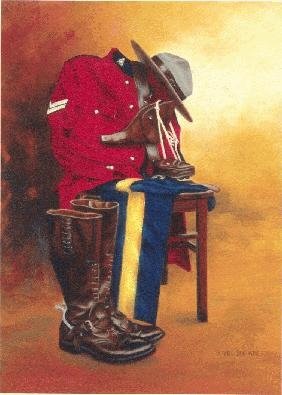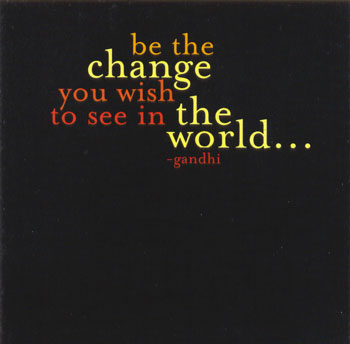What's Under the Uniform?

In the past several days there have been three events take place that have caused me to reflect on the crucial role that character plays in policing. More than ever, the public is demanding accountability, transparency and a critical evaluation of its policing services.
Yesterday, I attended a court case providing emotional support for a friend who was in turn supporting a loved one who was facing charges related to an arrest. I sat watching the young police officer and was struck by his honesty and apparent desire to speak the truth. Yet, as he was being thoroughly cross examined, I detected a subtle hint of defensiveness as he realized that he had made some mistakes in the arrest. His defensiveness transferred into evasiveness which had the effect of reducing his credibility somewhat. I knew what he was going through as I recall the numerous court cases that I was involved in where I chose evasiveness in the areas where I had made mistakes. How refreshing it would have been for me back then to admit to my errors and let the chips fall where they may so to speak. The young officer's credibility, while not necessarily diminished, would have been significantly raised had he faced his understandable fallibilities and conceded the points raised by the defence lawyer.
The second event that has taken place has been the apparent lack of response of the Commissioner of the RCMP to demands for accountability and answers respecting several high profile situations that have surfaced in the news. Like the young constable who was being evasive in the face of procedural criticisms, it would appear that the same could be said of the Commissioner and senior management in not only the RCMP, but many other police institutions. Evasiveness reduces credibility and I would venture to say that the Commissioner, at this time, is suffering from a credibility crisis with the public he serves and the men and women he leads.
The third event was a phone conversation I had this morning with an RCMP member who has committed his efforts in his profession to standing up for the rank and file membership. His frustration with the leadership of the institution, that he has toiled mightily for, was visceral. It is difficult for a thinking member of a police force to buy into words like integrity and truth and honor, service and transparency when in the words of many police officers there would appear to be a "double standard."
Issues of character in the profession of policing do not have a double standard. They only appear so when the words used to define the character espoused are without a foundational understanding of what these same words truly mean. Accountability has always been a two way street, and ones character will always come to the surface when one is being asked to be accountable for their decisions, actions and failures.
The character of the men and women beneath the uniform, regardless of rank, will reveal itself when they are faced with the inevitable necessity of answering the tough questions about their own decisions. The uniform, rank, or position only reflects the exterior of the person who wears it, often masking the character that lies beneath. It is what is inside that will mark the person for who he or she really is. And this inevitably outs itself in times where accountability is demanded, or to put it more bluntly, when the heat is on.
Character is refined by failure and struggle. A noble character bears the mantle of humility, and humility comes when one can admit weakness and mistakes and the need for personal change. It would seem that the power corridors of Ottawa are not necessarily the safest place to admit weakness, errors, mistakes, and character flaws, yet this process must begin with the individual as he or she looks in the mirror in the morning and chooses to take off the uniform of pride, conceit, arrogance, fear, cover - up and contempt for others.
The refining and development of noble character requires a paradigm shift of radical proportions as one contemplates issues such as the purpose of life, the definition of leadership, and the very careful and responsible use of power. It is a journey of passionate desire for truth that overrides personal ambitions and self aggrandizement.
It is a heart issue. It always has been and always will be. And what is in the heart of the person who wears the uniform will always show itself in action, behaviour and language.



